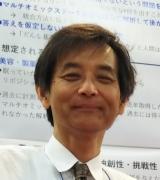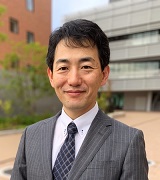
| Apr 1988 - Mar 1997 | Assistant in the Department of Physics, Faculty of Science, Tokyo Institute of Technology |
| Oct 1989 - Sept 1990 | Researcher, Forschungszentrum Juelich GmbH, Federal Republic of Germany |
| Apr 1997 - Mar 2006 | Assistant Professor, Faculty of Science and Engineering, Chung-Ang University |
| Apr 2006 - Current | Professor, Faculty of Science and Engineering, Chung-Ang University |
| Mar 2009 - Mar 2010 | Visiting Professor at the European Bioinformatics Institute |
| Mar-1984 | Graduated from the Faculty of Science, Tokyo Institute of Technology, Department of Physics |
| Mar-1986 | He studied physics at the Graduate School of Science and Engineering, Tokyo Institute of Technology |
| Mar-1988 | He completed a postdoctoral degree in physics at the Graduate School of Science and Engineering, Tokyo Institute of Technology |
| Apr 1984 - | Japan Physical Society |
| Jan 2006 - | Japan Bioinformatics |
| Jan 2006 - | The Society of Intelligence |
| Apr 2012 - Mar 2015 | Research on microRNA target-specific epigenetic markers using MiRaGE method |
| Apr 2012 - Mar 2015 | Soil disease inhibition using biological multi-activity index |
| Apr 2012 - present | Exploring miRNAs as disease-specific biomarkers |
| Apr 2013 - Mar 2015 | Drug discovery based on protein function prediction using Fams |
| Apr 2014 - present | Unsupervised variable selection using principal component analysis |
| Apr 2017 - present | Unsupervised variable selection using tensor decomposition |
Y-h. Taguchi, Unsupervised Feature Extraction applied to bioinformatics, Springer International, (2020)
Yoshihiro Taguchi, Life is Made of Digital (Bluebacks, 2019)
Yoshihiro Taguchi, The Seven Mysteries of the Hourglass (Chuko Shinsho, 1995)
Y-h. Taguchi, Turki Turki,
Mathematical formulation and application of kernel tensor decomposition based unsupervised feature extraction,
Knowledge-Based Systems,
Volume 217, 2021, 106834,
Y. -H. Taguchi and T. Turki,
“Application of Tensor Decomposition to Gene Expression of Infection of Mouse Hepatitis Virus Can Identify Critical Human Genes and Effective Drugs for SARS-CoV-2 Infection,”
in IEEE Journal of Selected Topics in Signal Processing,
vol. 15, no. 3, pp. 746-758, 2021
Other
Taguchi Yoshihiro ,
Data science using variable selection method by unsupervised learning using tensor decomposition,
AI・artificial knowledge can EXPO Spring Academic Forum,
28/04/2021,
Y-h. Taguchi, Turki Turki ,
In silico drug discovery for COVID-19 using gene expression profiles of mouse infected by MHV and those of human cell lines infected by SARS-CoV-2
7th Annual Congress of the European Society for Translational Medicine on Covid-19
21/09/2020,
Other

| Apr 1997 - Jan 2000 | Assistant Professor, TEPCO Endowed Chair, Graduate School of Engineering, The University of Tokyo |
| Feb 2000 - Mar 2002 | Invited Researcher, Research Organization for Advanced Information Science and Technology |
| Apr 2002 - Mar 2007 | Lecturer, Faculty of Systems Engineering, Tokyo University of Science, Suwa |
| Apr 2007 - Mar 2012 | Associate Professor, Faculty of Systems Engineering, Tokyo University of Science, Suwa |
| Apr 2012 - Mar 2017 | Associate Professor, Department of Mechanical Engineering, Faculty of Science and Engineering, Kindai University |
| Apr 2017 - Current | Professor, Department of Mechanical Engineering, Faculty of Science and Engineering, University |
| Apr 1989 - Mar 1993 | Department of Mechanical Engineering, Faculty of Science and Engineering, Tokyo University of Science |
| Apr 1993 - Mar 1995 | Graduate School of Science and Engineering, Tokyo University of Science, Department of Mechanical Engineering |
| Apr 1995 - Mar 1997 | Department of Systems Quantum Engineering, Graduate School of Engineering, The University of Tokyo |
| Ph.D. (Engineering) |
| Japan Society of Mechanical Engineers (Fellow) |
| The Japan Society for Computational Engineering and Science (Director) |
| Society of Automotive Engineers of Japan |
| Japan Welding Engineering Society |
|
In 1998, he received his Ph.D. (Engineering) for his research on automatic element division methods for hexahedrons.
In February 2000, he was involved in the development of simulation-related programs (GeoFEM project) for the Earth Simulator, the world's fastest at the time, at the Research Organization for Advanced Information Science and Technology. In 2002, he worked as a lecturer and associate professor at Tokyo University of Science, Suwa. In April 2012 he became an associate professor at Kindai University, and in April 2017 he became a professor at Kindai University. Since 2016, he has been conducting research into whether crack propagation can be predicted using deep learning and how to speed up learning. In particular, his research focuses on building CAE surrogate models for simulation-less systems. Physical surrogate models are necessary for data augmentation for regression problems. |
Yoshitaka Wada
Building a surrogate model using deep learning
Plastics Molding, Vol.32, No.3, pp.37-41, 2020
Naoki Miura, Tomohisa Kumagai, Masanori Kikuchi, Akiyuki Takahashi, Yun-Jae Kim, Toshio Nagashima, Yoshitaka Wada
Benchmark Analysis of Ductile Fracture Simulation for Circumferentially Cracked Pipes Subjected to Bending,
Proc. ASME, PVP2017-6A, 2017
Yoshitaka Wada, Masanori Kikuchi, Shinji Yamada, Ryosuke Serizawa, Yulong Li
Fatigue growth of internal flaw: Simulation of subsurface crack penetration to the surface of the structure,
ENGINEERING FRACTURE MECHANICS, Vol.123, pp.100-115, 2014